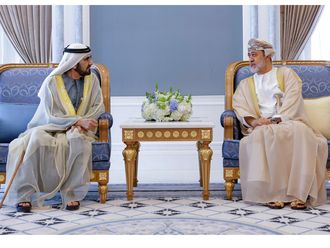Abu Dhabi: A top official of the country has lauded the decision of Shaikh Mansour Bin Zayed Al Nahyan, Deputy Prime Minister, Minister of Presidential Affairs and Chairman of Abu Dhabi Judicial Department, to establish a public prosecution and specialised judicial departments in each Court of First Instance in Abu Dhabi to look into crimes against domestic workers.
Nasser Bin Thani Al Hameli, Minister of Human Resources and Emiratisation, said Shaikh Mansour’s decision highlights the UAE’s respect for workers of all categories and its keenness to protect their rights and dignity under the rule of law and national institutions and legislations that safeguard the rights of contractual parties and enhance their balance and transparency.
He stressed that the decision will result in a significant positive effect on the contractual relationship (between the employer and the domestic worker) in terms of strengthening the culture of respect for labour rights, which are guaranteed by the Federal Law issued by President His Highness Shaikh Khalifa Bin Zayed Al Nahyan concerning domestic workers.
The decision will also give great impetus to the domestic work sector, which is being overseen by the Ministry of Human Resources and Emiratisation. This will be done through implementing a strategic vision aiming at controlling and regulating all phases of the temporary contractual work cycle in addition to carrying out a package of policies and programmes that will enhance the awareness of contractual parties on their rights and duties, Al Hameli added.
On Wednesday, Shaikh Mansour issued a decree establishing a public prosecution and specialised judicial departments in each Court of First Instance to handle crimes against domestic workers.
The move was aimed at enhancing the effectiveness and sustainability of judicial processes and ensuring that services are accessible for everyone. This is to achieve ultimate justice and consolidate the principles of tolerance and human rights through setting up of an institutional infrastructure to preserve the rights of all social, economic, ethnic and religious groups under the rule of law and in conformity with the international guarantees and standards governing human rights.












